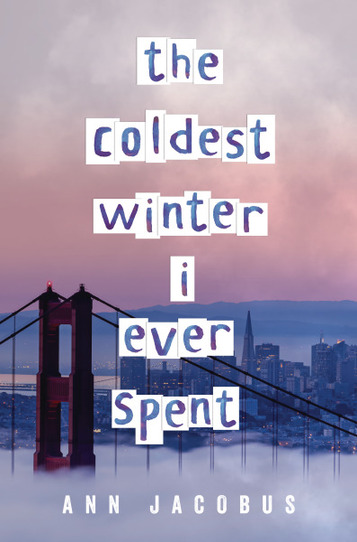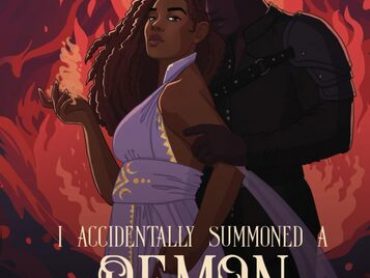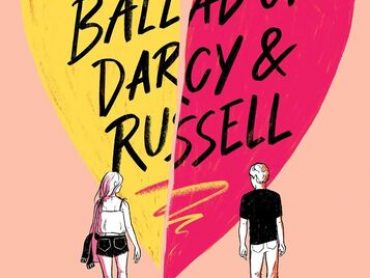Ann Jacobus is the author of The Coldest Winter I Ever Spent. The Coldest Winter I Ever Spent follows Eighteen-year-old Del who is living in San Francisco with her beloved aunt. The novel explores mental health, grief, and addiction. YEM was able to speak to Ann about adding a mental health aspect into her book, if any part of this book was inspired by her real life, and her favorite part of writing for a young adult audience.
1. When did you first know that you wanted to be an author?
It was not until my thirties that I realized that my childhood dream of being a theater or film director could be realized by writing fiction.
2. How would you describe The Coldest Winter I Ever Spent?
It’s about 18-year-old, suicide-prevention volunteer Delilah with her own troubled past, who finds herself in crisis again when her beloved aunt and guardian Fran is diagnosed with late stage, terminal cancer, and Del must take care of her.
3. Did you know going into writing this book that you wanted to add a mental health aspect into it?
Yes. The main character in my first book is depressed and suicidal. I wanted this character to be beyond that—to have been suicidal in the past, but to be coping well and getting on with her life. Until. Well, life.
4. Is any part of this book inspired by your real life?
Yes, I was a suicide crisis line counselor for years and I nursed my mom through a cancer similar to the one that Del’s Aunt Fran is diagnosed with. I also struggled with depression and suicidality as a teen—younger than Del, but I will never forget what that felt like. A story about someone my age dealing with what I was, could have made a big difference. As it was, books probably saved my life anyway. It’s safe to say my personal experience with suicidality as a teen has informed the rest of my life one way or another.
5. As someone who is a mental health advocate, what was something you felt was important to add into your book?
Stories have tremendous power to show that mental health and mental illness are a normal part of life, no different than physical health. They can not only greatly diminish the stigma that still clings to all aspects of mental health but can also model that with support and good self-care, coping well is entirely doable 98% of the time. Stories can help eradicate the many tropes and stereotypes that still exist, and show how professional and family support can make so much difference—even if these are optimistic ideals for many.
6. What is your writing process like?
Tortured.

Marc Olivier Le Blanc photography, Pictures by San Francisco Photographer, advertising and editorial.
7. What is something you want your readers to take away from The Coldest Winter I Ever Spent?
Del says it best, “that death is to be respected and honored.” Death in any form puts everything else into stark perspective. I believe we’re all here for a reason and wouldn’t you know, it’s to support other people. That’s what will give our lives meaning.
8. Do you have any advice for those who want to be writers in the future?
Read everything you can get your hands on. Start writing now. Keep a journal. Jot down ideas for good stories, or characters, or snippets of dialogue you hear or that come into your head, and notes about things you really care about.
9. What is your favorite part of writing for a young adult audience?
Younger readers take stories to heart. I remember the books I read as a kid and a teen more clearly and with more love and emotion than the majority of books I’ve read as an adult. We get jaded, I guess. Writing for young adults helps me resist that. I also love younger main characters because they have the capacity to grow and change more than adult protagonists do.
10. Who is a writer that inspires you?
There are so, so many. But okay, a YA writer who inspires me is Jandy Nelson.
A storyteller for adults I admire is Stephen King.
11. Is it easy or a challenge to write a character such as Del?
It’s more of a challenge, because as her author I have to really get inside her pain, fear, anxiety, past depression, her humiliation, anger, denial, and grief. A writer has to do that with any character, but I think some characters, like Del, feel and struggle with things more. Doing that with her was sometimes hard. On the other hand, it helped me grieve and come to terms with my mom’s death, as well as with the loss of a niece who completed suicide in 2015.
12. Do you hope to write a sequel in the future or something entirely new?
I’m working on something new. It involves a young woman who’s forced to come into her ability as a psychic medium since the ghost of a recently murdered girl won’t leave her alone.




